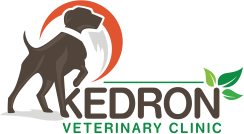Understanding Canine Parvovirus: Protecting Your Pet’s Health
Canine parvovirus, commonly known as ‘parvo’, emerged in 1978 as a highly contagious virus that targets the cardiovascular system and gastrointestinal tract in dogs. Recognizing the symptoms and seeking prompt veterinary care is crucial if you suspect your dog may be affected. Learn more about this concerning illness below.
Causes of Parvovirus in Dogs: Unraveling the Origins
Parvovirus is primarily spread through the feces of infected dogs. When ingested, the virus invades the intestinal wall, leading to inflammation and discomfort. Compounding the challenge, parvovirus is resilient, remaining viable in the environment for up to a year. Unvaccinated dogs are at risk of continuous exposure if their surroundings retain parvovirus particles, with clinical signs typically manifesting within 7-10 days of infection.
Parvo Symptoms in Dogs: Recognizing the Signs
Signs of parvovirus infection include repeated vomiting and sudden onset of bloody diarrhea, posing a significant risk of fluid loss and dehydration. Other symptoms may include lethargy and loss of appetite. Diagnosis is confirmed through detection of the virus in fecal or blood serum samples.
Preventing and Treating Parvo: A Proactive Approach
The most effective defense against parvovirus is adherence to a rigorous puppy vaccination schedule. Puppies should receive initial vaccinations against parvovirus, followed by regular boosters throughout adulthood. Female dogs should receive a booster before breeding to prevent transmission to offspring.
Early intervention is key in treating parvovirus. Veterinary care typically involves aggressive hydration and electrolyte management through intravenous fluids, along with antibiotics and anti-inflammatory medications to control infection and inflammation. Antispasmodic medication may also be administered to alleviate vomiting and diarrhea, aiding fluid retention and recovery.
Seeking Urgent Care at Kedron Veterinary Clinic: Your Partner in Pet Health
At Kedron Veterinary Clinic, our emergency vets are ready to initiate treatment as soon as parvovirus is diagnosed. If you suspect your dog may be affected, don’t hesitate to contact us immediately at (07) 3857 1785 or reach out online for compassionate care and expert guidance.
